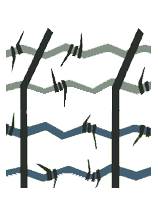Then,
during its first decade of existence, German cinema led a sideshow
sort of existence; it was nothing more than cheap entertainment
that in fact often was controlled by sideshow companies.
Only just prior to
World War I did the artistic possibilities of this new media begin
to be exploited. The first significant feature length films
appeared in 1913, mainly reaching back into stage theater
traditions.
In particular, Max
Reinhardt, Director of the Deutsche Theater (and also of the
acting school where Max Ehrlich was studying at the time) began to
apply his wizardry to directing film productions. Other great film
directors during this early period included Paul Wegener and Joe
May.
Not before long,
the first German movie stars also were "born", many of
whom -- over the years -- would work with Max Ehrlich. They
included Henny Porten, Asta Nielsen, Pola Negri (Polish
born, but after 1917 present largely in German films), Emil
Jannings, Werner Krauß and Conrad Veidt just to name a few
In 1917, with the
support of the German government, the Universum Film AG (UFA) was
founded, and until 1945 would remain the main production company
in Germany (see below).
After World War I,
within the relative freedom of the Weimar Republic, cinema both
grew and developed, taking on numerous new forms.
Ernest Lubitsch
made historical and operetta films. Fritz Lang also presented his
first productions, as did Friedrich Wilhelm Murnau.
Soon,
expressionist silent movies became the main means of artistic
expression in the film media during the 1920s,
But Fritz Lang
quickly freed himself from these expressionist influences, going
his own way into new cinematographic directions. These came to be
characterized as "Neue Sachlichkeit" (New Concreteness)
and "Proletarischer Film" (Proletaritariat Cinema),
terms taken over from the world of painting (Dix, Beckmann, Grosz)
and giving rise to a more-or-less realistic vision of the world
and understanding of cinema.
The "Neuesachlichkeit"
(New Concreteness) trend perhaps found it's best expression in the
area of documentary films, whilst, at the end of the1920s... early
1930s, "Proletarische Filme" (Prolitarian Films)
emerged, both spiritually and organizationally attached to the
labor movement.
Meanwhile,
by the early 1930s, the UFA, under the direction of Alfred
Hugenberg, had grown into a powerful business concern.
But, in 1932, a
new management team took over and the UFA came under the control
of the "upcoming" Fascist regime. From this point
onward, until it's demise following World War II, the UFA became
one of the most powerful medias to be misused by the Nazis.

